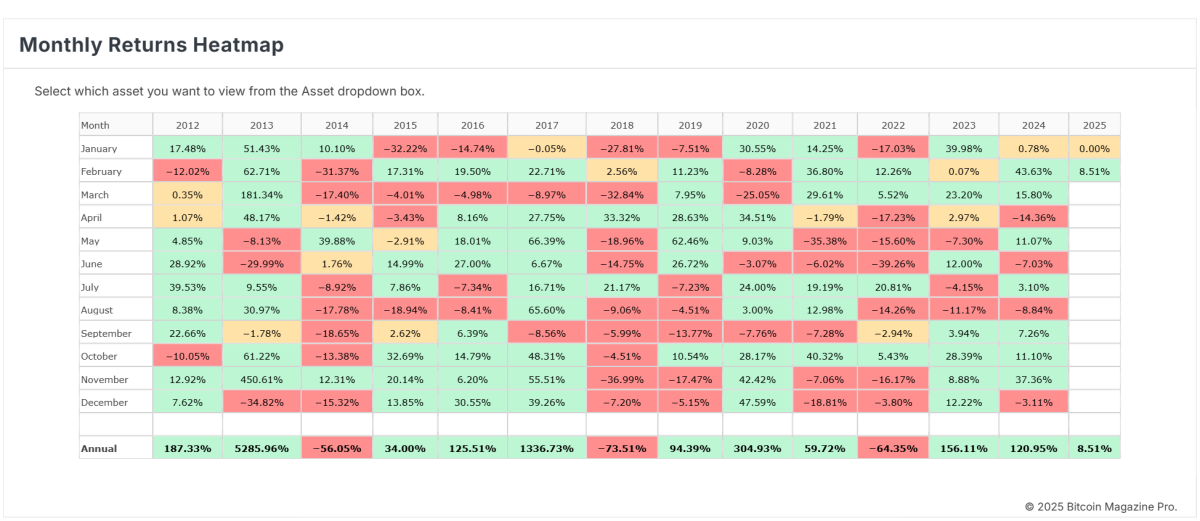Introduction to Credit Building
Credit is a critical component of financial health that plays a significant role in achieving various life goals. It comprises the ability to borrow money and the trust that lenders extend to borrowers based on their repayment history. Understanding credit is a fundamental step toward ensuring financial stability and security in the long term.
A credit score is a numerical representation of an individual’s creditworthiness, typically ranging from 300 to 850. This score is influenced by several key factors, including payment history, credit utilization, length of credit history, types of credit accounts, and recent inquiries. Payment history is the most crucial element, as consistently meeting payment obligations demonstrates reliability to lenders. Furthermore, maintaining a low credit utilization ratio, which reflects the amount of credit used compared to the total available credit, is vital for presenting oneself as a responsible borrower.
Building a favorable credit history opens doors to numerous financial opportunities, from securing loans for significant purchases like homes or cars to obtaining lower interest rates. A higher credit score can lead to more favorable terms in mortgages, auto loans, and even credit card offers. It can also impact other aspects of life, such as rental applications and insurance premiums. Understanding credit as a vital financial instrument allows individuals to plan effectively for the future, ensuring that they make informed decisions that will bolster their credit standing over time.
In essence, credit is not merely a tool for borrowing; it is a means to enhance one’s financial future. By becoming well-versed in credit principles and implementing sound credit-building strategies, individuals can pave the way for a stable and prosperous financial life.
Personal Motivation for Building Credit
Building credit has become an essential aspect of my financial journey, deeply rooted in my past experiences and aspirations. Growing up, my family often faced financial struggles, which instilled in me a keen awareness of the importance of financial stability. Despite these challenges, I was fortunate to understand early on that managing money and building a good credit score would play a significant role in shaping my future. My first encounter with credit came when I attempted to secure a loan for my first car. This experience was enlightening, as I quickly realized that my lack of credit history would hinder my ability to obtain favorable loan terms.
I vividly recall the anxiety of being turned away and the feeling of disappointment that followed. This setback propelled me toward making a conscious effort to build my credit. I began by opening a secured credit card, which offered me a chance to establish a credit history while managing my spending. This initial step was not just about securing financing; it was also about gaining independence and taking control of my financial destiny. With each on-time payment, I witnessed my credit score gradually improving, and my confidence grew alongside it.
Moreover, the motivation to build credit extended beyond mere financial transactions; it was tied to my long-term aspirations. My dream of homeownership has always served as a driving force. I understood that a strong credit profile would not only allow me to purchase a home but also provide me with better mortgage rates and terms. This aspiration has kept me focused and committed to my credit-building journey, reminding me that every responsible financial decision I make now contributes to my future security.
The Importance of a Good Credit Score
A good credit score is crucial for achieving financial stability and security in today’s economy. Credit scores typically range from 300 to 850, with higher scores indicating better creditworthiness. Credit reporting agencies, such as Experian, TransUnion, and Equifax, calculate these scores based on several factors, including payment history, credit utilization, length of credit history, types of credit in use, and recent inquiries. Understanding these elements is essential for individuals striving to maintain a strong credit score.
One of the primary implications of having a good credit score is access to favorable loan terms. Lenders often offer lower interest rates to borrowers with higher credit scores, which can significantly reduce the cost of borrowing over time. For instance, a difference of just a few percentage points in interest rates on a mortgage or car loan can save thousands of dollars. Moreover, individuals with good credit may also benefit from higher credit limits on credit cards and increased chances of being approved for certain financial products.
Despite the obvious advantages, misconceptions about credit scores persist. Many individuals believe that checking their own credit score will negatively impact it; however, this is not true. Self-checks are considered “soft inquiries” and do not affect one’s creditworthiness. Additionally, another common myth is that closing old accounts improves credit scores; in fact, maintaining a longer credit history can positively impact one’s score. Understanding these nuances can empower individuals to take proactive steps towards enhancing their credit profile.
In conclusion, maintaining a good credit score is a vital aspect of financial health, influencing everything from loan applications to insurance rates. By understanding how credit scores work and dispelling myths surrounding them, individuals can navigate their financial futures with confidence.
Common Methods for Establishing Credit
Establishing credit is an important step for individuals looking to secure their financial future. Several methods can facilitate this process, each with its own advantages and disadvantages. One popular option is to apply for a secured credit card. With a secured credit card, the user must deposit a specific amount of money as collateral, which typically serves as the credit limit. This approach is beneficial for those with limited credit history, as it allows for responsible credit building. However, one downside is that the initial deposit may be unmanageable for some individuals.
Another effective strategy for establishing credit is becoming an authorized user on an existing credit account. By being added to a responsible cardholder’s account, the authorized user can benefit from the primary cardholder’s positive payment history. This can significantly enhance the authorized user’s credit score, assuming the primary user maintains good financial habits. Nonetheless, this method relies heavily on the behavior of the primary cardholder, making it a somewhat passive approach to credit building.
Taking out small personal loans can also be an effective means of establishing credit. Lenders often offer personal loans with lower amounts, making them accessible to individuals who may not have a strong credit history. Successfully managing the repayment of a personal loan can demonstrate creditworthiness to future lenders. However, it is critical for borrowers to carefully consider their repayment ability before taking on new debt, as missed payments can adversely affect credit ratings.
Overall, there are various methods available to individuals seeking to establish credit. It is essential to weigh the pros and cons of each approach to determine which strategy aligns best with one’s financial situation and goals. Each method, when approached with careful consideration, can contribute significantly to building a solid credit foundation.
Tips to Manage Credit Wisely
Effectively managing credit is a vital component in maintaining and improving your credit score, which can significantly impact your financial future. One of the most fundamental practices is making timely payments. Payment history accounts for a large portion of your credit score. Ensure that bills for credit cards and loans are paid on or before the due date to avoid late fees and damage to your credit profile.
Additionally, monitoring your credit utilization is crucial. Credit utilization measures the amount of credit you are using compared to your available credit limit. Ideally, this ratio should remain below 30%. Keeping your credit utilization low demonstrates to lenders that you are capable of managing debt responsibly. If you’re nearing this threshold, consider paying down existing balances or increasing your credit limits responsibly.
Regularly monitoring your credit reports is another essential tip. Each year, you are entitled to a free credit report from each of the major credit bureaus. Reviewing these reports allows you to identify any errors or fraudulent activity that may negatively affect your score. If you discover inaccuracies, you have the right to dispute them to ensure your credit history is accurate.
Moreover, diversifying your credit types can also bolster your credit profile. While it is vital not to open multiple accounts haphazardly, having a mix of credit types—such as installment loans, credit cards, and retail accounts—can demonstrate to lenders that you can manage various types of credit responsibly.
Lastly, stay informed about your financial habits and continue learning about credit management. Being proactive in understanding and applying these tips will empower you to navigate the complexities of credit effectively, setting the stage for a healthier financial future.
Understanding Credit Reports
A credit report is a crucial financial document that provides a comprehensive overview of an individual’s credit history. It contains detailed information about credit accounts, payment history, and the overall credit utilization of the consumer. Typically organized by credit reporting agencies, these reports serve as a vital resource for lenders, landlords, and other entities when assessing an individual’s creditworthiness. Understanding your credit report is the first step towards building and maintaining a healthy credit score, which plays a significant role in securing financial opportunities.
Individuals can obtain their credit reports from the three major credit bureaus: Equifax, Experian, and TransUnion. Under federal law, consumers are entitled to one free credit report from each bureau annually. Requesting these reports is an essential practice, as it allows individuals to review their financial history and understand the factors influencing their credit scores. It is advisable to request and review your reports at different intervals throughout the year to remain informed of any changes or developments.
Each credit report includes vital personal information, such as your name, address, Social Security number, and employment history. Furthermore, it details the credit accounts you hold, including credit cards, loans, and mortgages, along with your payment history on those accounts. Analyzing this information is critical, as it can reveal patterns that could affect your ability to secure loans or obtain favorable interest rates.
Regularly reviewing your credit report enables you to spot errors or discrepancies that may negatively impact your credit score. Common issues to look out for include incorrect account statuses, fraudulent accounts, and inaccurate payment history. Addressing errors promptly can help safeguard your credit profile and ensure that your financial decisions are based on accurate information, ultimately contributing to a more secure financial future.
The Role of Credit in Achieving Financial Goals
Credit plays a pivotal role in helping individuals achieve their broader financial goals, such as homeownership, education funding, or starting a business. A strong credit profile can significantly influence the opportunities available to a person. When seeking a mortgage for purchasing a home, for instance, lenders meticulously assess credit scores to determine the risk associated with the loan. A higher credit score not only increases the likelihood of loan approval but also opens up access to lower interest rates, ultimately leading to substantial savings over the life of the mortgage. Therefore, building good credit is an essential step toward achieving homeownership.
Similarly, when it comes to financing education, a solid credit history can enhance a prospective student’s ability to secure loans with favorable terms. Many educational institutions offer options for student loans that consider the borrower’s credit standing. A strong credit score signals to lenders that the borrower is likely to repay their debts, which can pave the way for accessing necessary funds for tuition and other educational expenses. As such, investing in credit building is critical for those aiming to further their education without overextending financially.
Moreover, aspiring entrepreneurs frequently rely on their credit profiles to secure business loans or lines of credit. A robust credit score can be the distinguishing factor when lenders evaluate a business proposal. Good credit indicates trustworthiness and the ability to repay borrowed funds, allowing business professionals to invest in equipment, inventory, and operational costs. This potential for expansion and growth largely hinges on a well-established credit history.
In essence, the relationship between credit building and long-term financial planning cannot be underestimated. Effective credit management lays the groundwork for achieving significant milestones, all while facilitating better financial decisions across various stages of life.
Challenges in Building Credit
Building credit can be a multifaceted endeavor, and numerous challenges often impede individuals on their journey toward establishing a robust credit profile. A prevalent issue is the existence of a limited credit history, which poses a significant barrier for many. Without previous accounts, such as credit cards or loans, potential lenders typically have no basis upon which to evaluate an individual’s creditworthiness. Consequently, individuals new to credit may find it difficult to secure approvals, as lenders often favor those with an established payment history.
Moreover, misunderstandings about credit can exacerbate these challenges. Many individuals are not fully aware of the mechanisms behind credit scores, including the impact of payment history, credit utilization, and the types of credit utilized. These misconceptions can lead to poor credit management choices, such as prioritizing the opening of multiple credit accounts in quick succession, which instead of establishing credit, may harm an individual’s score through overly high utilization or countless hard inquiries. Education regarding credit fundamentals is essential to dispel these myths and empower individuals to make informed decisions.
Additionally, economic barriers such as unemployment or low income may further hinder credit-building efforts. Individuals in precarious financial situations may struggle to make timely credit repayments, leading to defaults that significantly impact their credit scores. They may also lack access to traditional credit products altogether. To overcome these hurdles, individuals can explore alternatives like secured credit cards or credit-builder loans, which are designed specifically for individuals with limited credit history. Engaging with financial education resources can also equip individuals with the necessary knowledge and strategies to navigate the complexities of credit building. With persistence and the right approach, overcoming these challenges is possible and can lead to a healthier financial future.
Resources for Further Learning and Support
As individuals pursue their journey to building credit, it is essential to equip themselves with additional resources and support mechanisms. A wealth of information and tools is available to help navigate the complexities of credit management effectively. Numerous websites and online platforms offer valuable insights into credit scoring, understanding credit reports, and enhancing financial literacy.
One such resource is the Consumer Financial Protection Bureau (CFPB) website. This official governmental site provides comprehensive information on credit scores, reports, and various tips for improving credit health. The CFPB also offers guides that help individuals understand their rights concerning credit and debt. Another beneficial platform is Credit Karma, which not only allows users to monitor their credit scores but also offers tailored advice on improving those scores and managing debts strategically.
In addition to these websites, financial education programs and workshops hosted by non-profit organizations can be instrumental. Organizations such as the National Foundation for Credit Counseling (NFCC) provide access to certified credit counselors who can offer personalized advice on credit management and budgeting. Participating in these programs can enhance one’s understanding of credit building and ultimately provide strategies to achieve financial goals.
Furthermore, various mobile applications such as Mint and Experian allow users to track spending habits, manage budgets, and monitor credit scores in real-time. Utilizing these tools can provide a convenient way to stay informed about one’s financial health while simultaneously working towards improving credit standing.
By leveraging these resources, individuals can gain comprehensive knowledge and support on their credit journey, empowering them to make informed decisions that contribute to their financial security.










